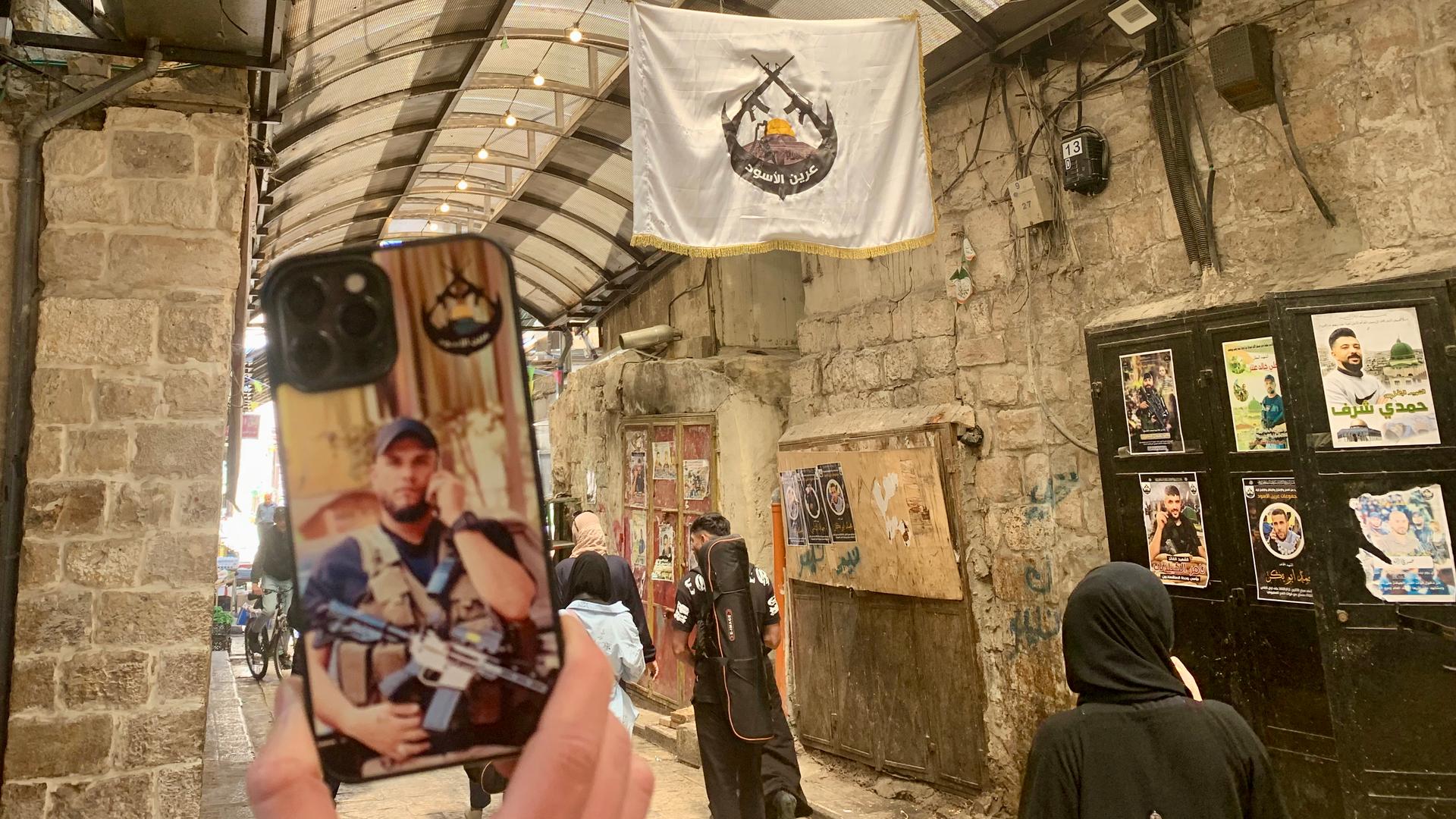On the walls in the alleyways of the Old City of Nablus, in the Israeli-occupied West Bank, there are rows of posters all over the place, showing the faces of Palestinian men in their teens and 20s. Most of them are holding weapons.
The young men, all of them assumed to be dead now, were members of Areen al-Usud, or Lions’ Den, a militant group that has emerged in the West Bank over the last year or two.
And they’re being hailed as national heroes by Palestinians in the West Bank.
“God bless the martyrs,” said the longtime owner of a takeout shop there. He didn’t give his name — and that’s not surprising, because the Lions’ Den is treated as an illegal, terrorist group by Israel.
The Israelis blame the Lions’ Den for a rising number of shooting attacks near Nablus, including the death of one Israeli soldier.
Israeli security forces have gone after the group in recent months, killing or arresting many of its top leaders.
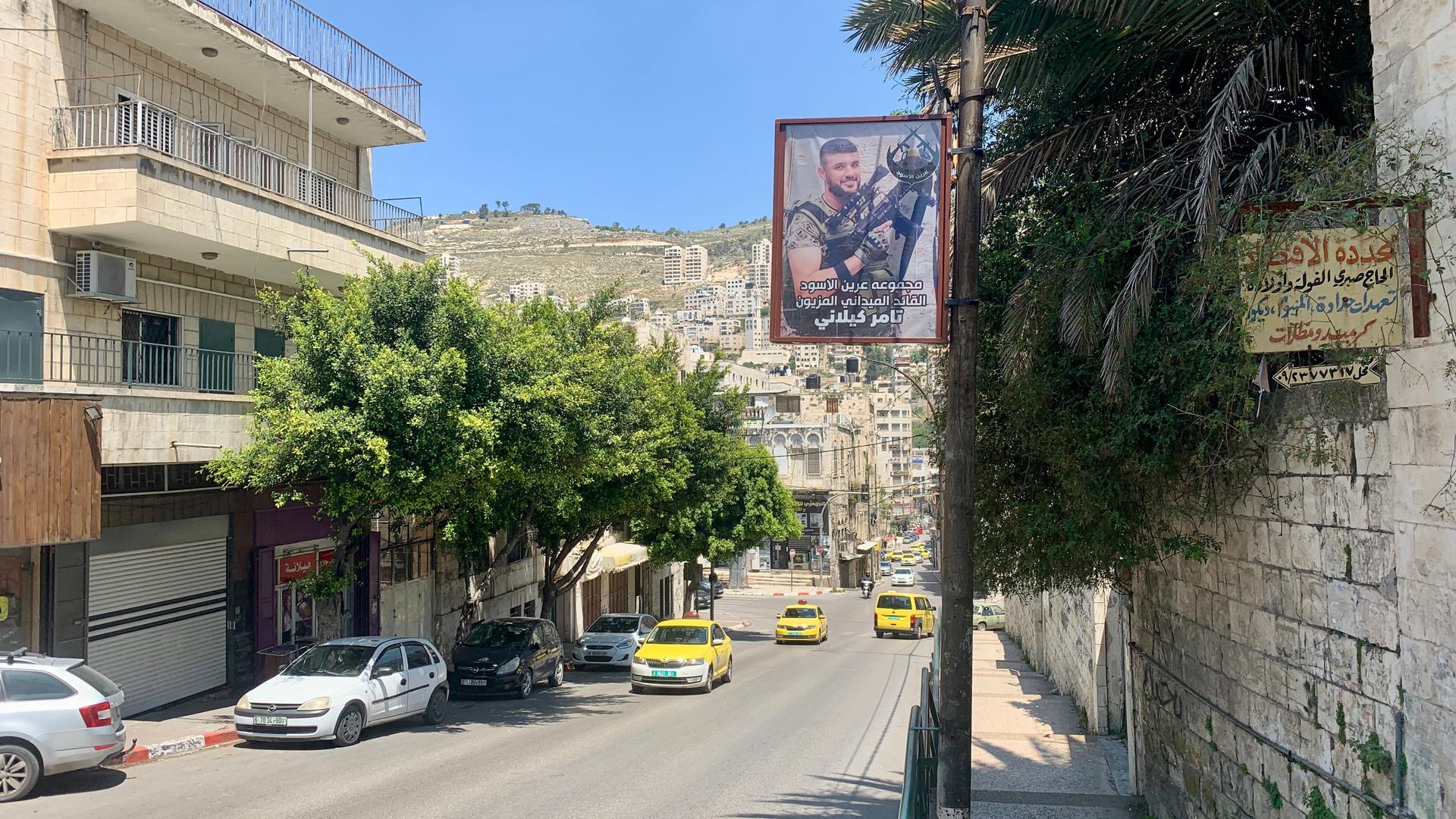
All the same, many West Bank Palestinians say that the Lions’ Den — and other upstart militant groups like it — are something that’s both new and inspiring.
At the takeout shop, some kids gathered, chiming in with, “We’re with the Lions’ Den, too!”
A 10-year-old boy proudly showed his T-shirt with the silhouette of an M-16 machine gun.
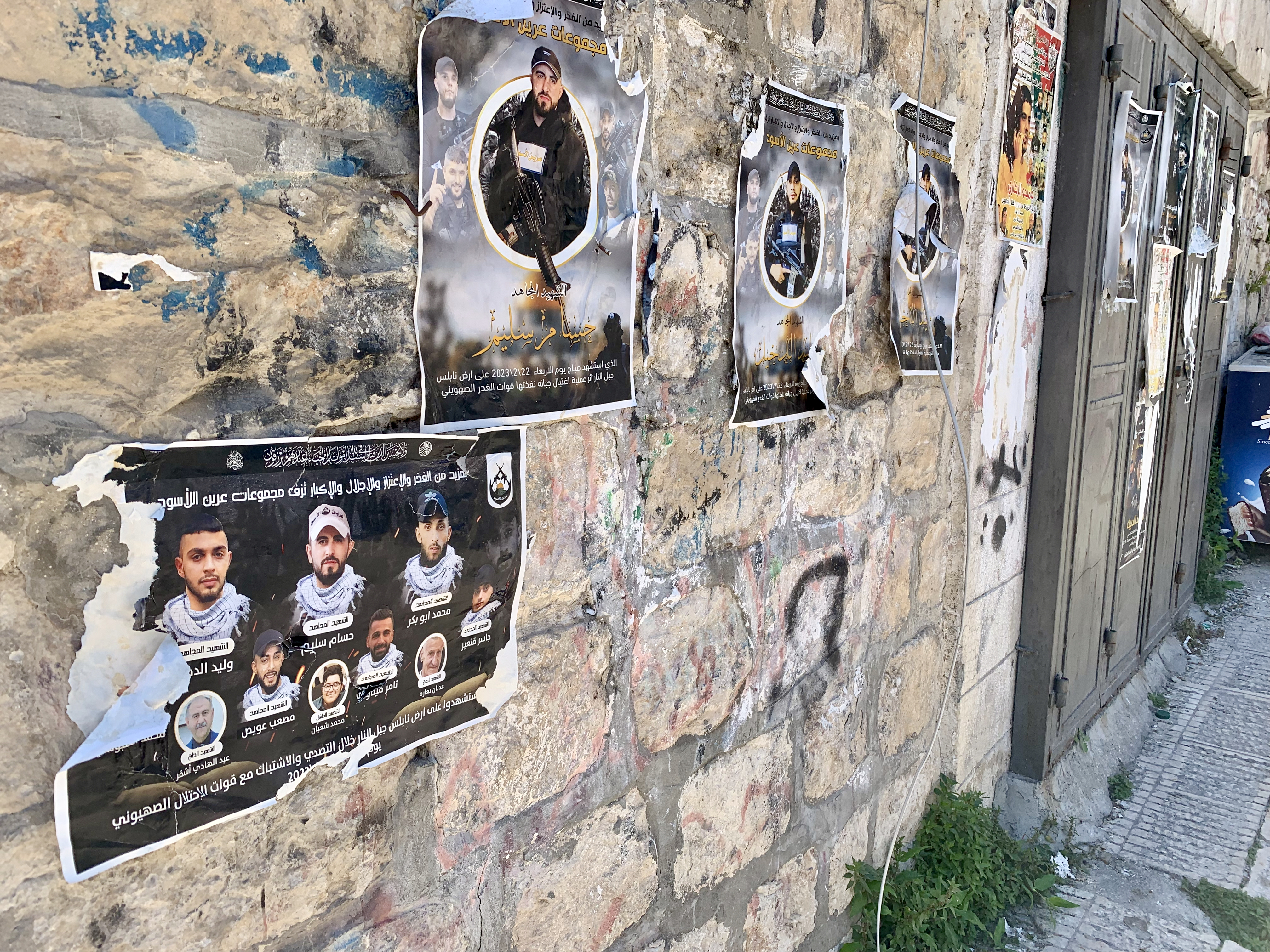
A 23-year-old man who gave his name as Zuhair showed his mobile phone case, which pictured the founder of the Lions’ Den, who is also now dead.
“These people are resisting against the occupation,” he said. “These are our friends. These are the ones that the Israeli occupation forces are always killing. They have boosted the morale of each and every person in this city.”
Motivating another generation of Palestinian youth
A sprawling old cemetery in Nablus was mostly empty on Tuesday afternoon, except for one section, with a cluster of about a dozen graves. They stood out among the crowded rows of aging white gravestones, because they are made of shiny, new black granite. They’re surrounded by brightly colored flowers. And a steady trickle of visitors come by to pay their respects.
This section of the cemetery is where the Lions’ Den’s dead are buried.
Among the visitors, there’s a group of teenagers, a few of them who drove from a nearby village to visit this place. Also here, relatives of the deceased leaders of the Lions’ Den.
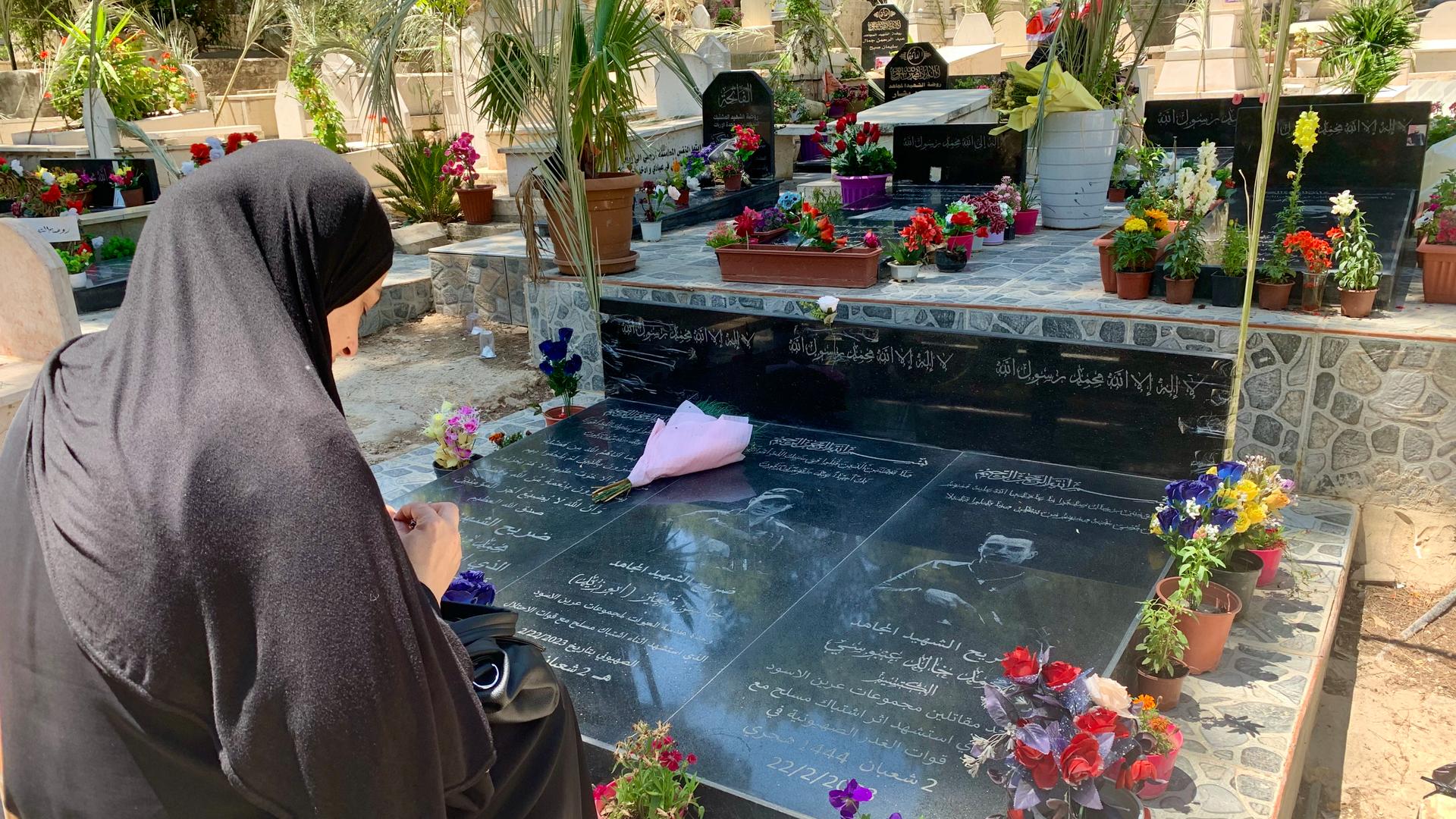
One of them was Samar Ibrahim, who wore a pendant around her neck with a picture of her son, Tamer Kilani. She said that he was killed in late February in a shootout with Israeli troops just down the road from the cemetery.
Ibrahim, who sat on a bench in front of his grave, said that she could feel her son’s presence.
“First and foremost, I tell him that, ‘I’m very satisfied with what you did. You served your country. You served your people. You served your whole nation. And what you did is something I’m so proud of.’”
Ibrahim said that she hopes the members of the Lions’ Den will motivate another generation of Palestinian youths to follow in their footsteps by fighting Israel in defense of Palestinian lands, people and faith.
The enthusiastic support that people in Nablus express for groups like the Lions’ Den is not surprising at all to Tahani Mustafa, Palestine analyst for the International Crisis Group think tank.
There is not a lot of faith in the Palestinian Authority and its security forces in the West Bank these days.
And Mustafa said that the Lions’ Den, along with other self-proclaimed independent militant groups, are stepping in to fill the void. On top of that, she said that Israel’s right-wing government is taking a harder line in the Palestinian territories.
“We’ve seen some of the deadliest death tolls here in the West Bank, just through Israeli incursions, arrests and targeted assassinations.”
“Israeli policies have become far more aggressive, far more intrusive,” Mustafa said. “We’ve seen some of the deadliest death tolls here in the West Bank, just through Israeli incursions, arrests and targeted assassinations. A lot of that has been very preemptive from Israel’s side.”
A lack of strategy, vision
Several people in Nablus told The World that the Lions’ Den could help bring a final victory over the Israeli occupation one day.
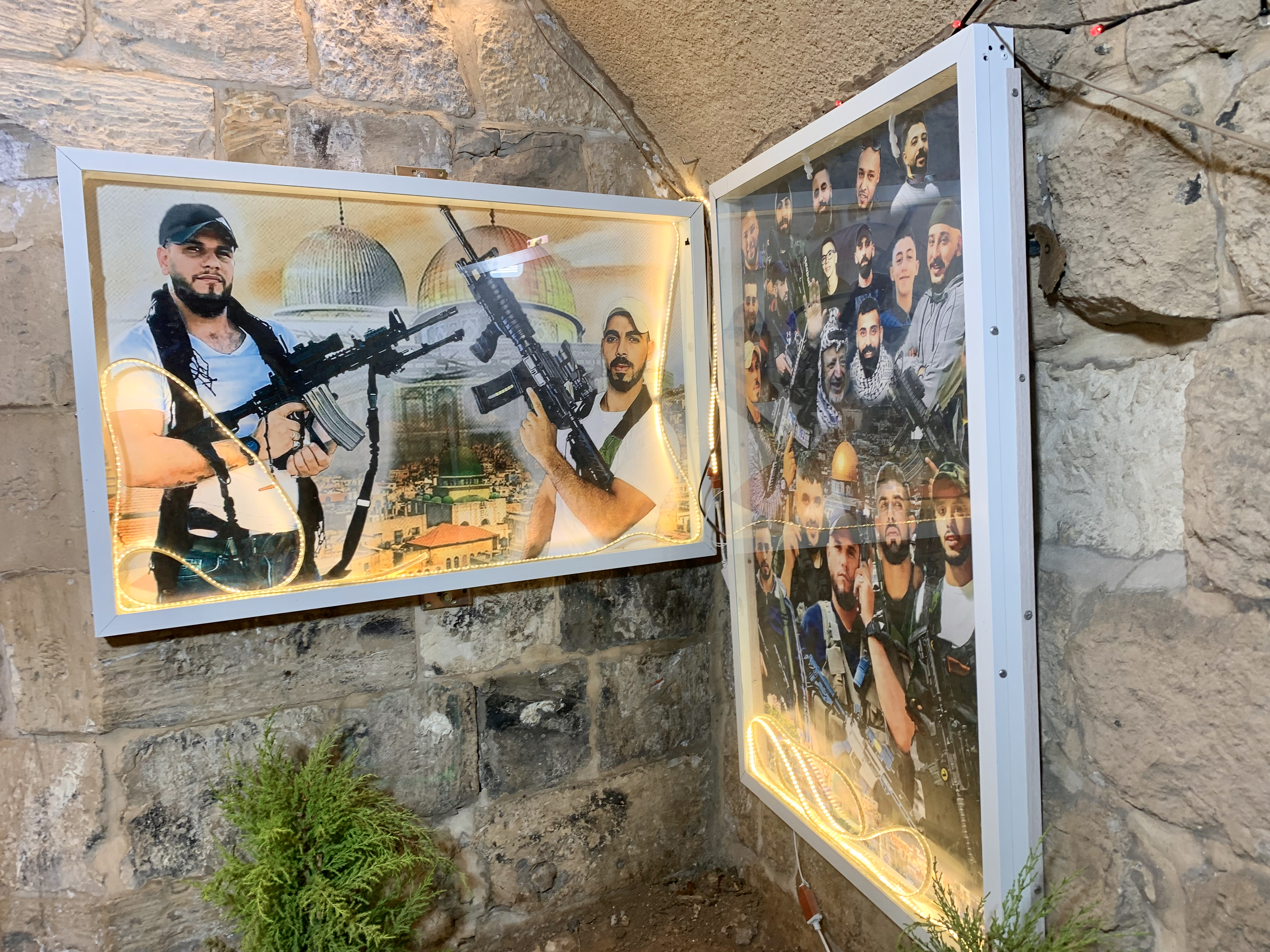
But Mustafa estimated that the group’s members only number in the dozens. She added that many Palestinians are quietly wary about these young fighters provoking an even harsher response from Israel.
“As much as these groups do represent a very popular cause, they also lack any strategy, vision and, often, the implications of what they do can be more harmful than they can be beneficial.”
Many older Palestinians in the West Bank remember what followed the second intifada in the early 2000s.
Israeli military checkpoints, road closures and security walls stifled the local economy and disrupted daily life.
According to one recent poll, solid majorities of both Palestinians and Israelis now say they’ve lost hope in a two-state solution. And they see another violent Palestinian uprising coming soon.
